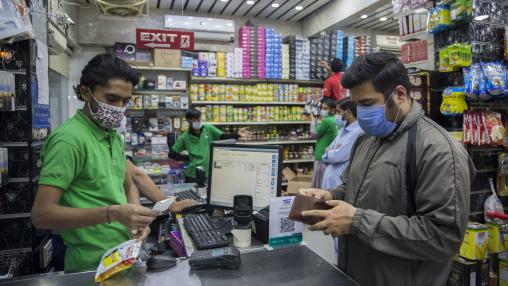
COVID-19 and rising global food prices: What’s really happening?
Food prices are skyrocketing around the world. In January, international prices for major food items climbed to a level near the heights of the global food price crises of 2007-08 and 2010-11, according to the FAO Food Price Index (Figure 1). The spike has raised concerns over the potential for another global food crisis, increasing hunger among the poor and, possibly, social unrest around the world.
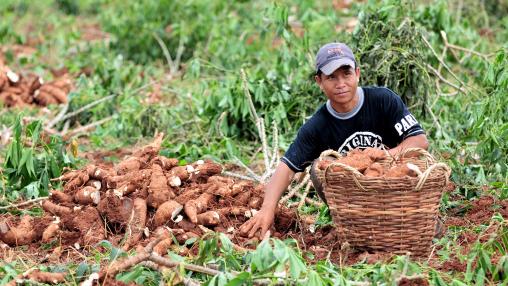
The Impacts of COVID-19 on Farmers' Income and Food Security In The Globalized Cassava Value Chains In Cambodia and Vietnam
Scientists from the Alliance of Bioversity International and CIAT, led by Vanya Slavchevska, undertook a rapid study to gather evidence on the initial impacts of COVID-19 on cassava smallholders in Cambodia and Vietnam.
The research evaluates how smallholders coped with the economic consequences of COVID-19 in the short term, and whether livelihood diversification strategies mediated or exacerbated the impacts of the crisis.
The COVID-19 pandemic context
Impacts of COVID-19 on global poverty, food security, and diets: Insights from global model scenario analysis
This tool aims to provide a rigorous framework to assess the risks pandemics like COVID-19 pose to global poverty and food security. It assesses the impact of coronavirus disease 2019 (COVID-19) on poverty, food insecurity, and diets, accounting for the complex links between the crisis and the incomes and living costs of vulnerable households.
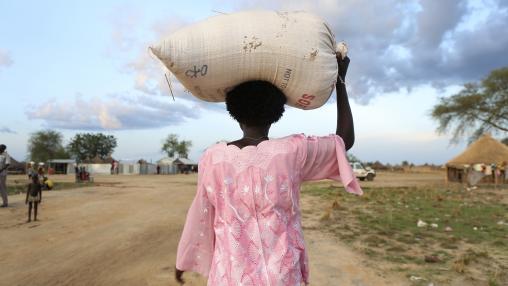
Acute Hunger Continues to Rise Globally: Global Report on Food Crises Mid-Year Update Released
Alarming levels of hunger and food insecurity are on the rise across the globe. According to the September 2021 mid-year update to the 2021 Global Report on Food Crises (GRFC), an estimated 161 million people in 42 countries/territories have faced Crisis-level (IPC/CH Phase 3) food insecurity or higher. This number is up from the estimated 155 million acutely food-insecure people reported by the GRFC for 2020.
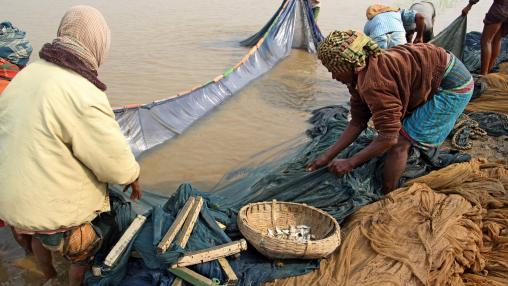
Impact of COVID-19 on National Food Systems
The CGIAR COVID-19 Hub has released updated policy notes regarding the impact of the COVID-19 pandemic on global and regional food systems. This latest series of updates covers several FSP priority countries, including Ethiopia, Nigeria, Malawi, and Bangladesh.
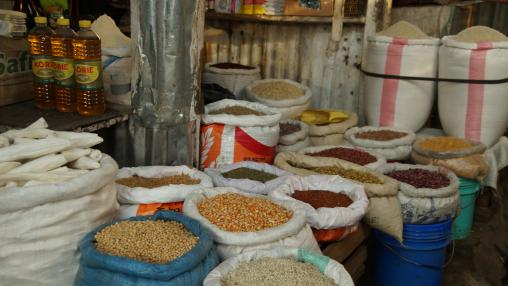
Rising food prices are a concern but no reason for panic yet
Global food prices are on the rise. FAO’s Food Price Index indicates prices in international markets have risen by 40 percent from a year ago (May 2020). Prices of vegetable oils in particular have surged, showing an increase by almost 110 percent over the past year. Other commodity prices, like those for metals, oil, and other minerals prices also have shown sustained increases since mid-2020.
How concerned should we be?
Transforming Food Systems After COVID-19: European Commission Discussion of IFPRI’s 2021 Global Food Policy Report
COVID-19 has upended local, national, and global food systems, and put the Sustainable Development Goals further out of reach. But lessons and momentum from the world’s response to the pandemic can contribute to food system change.
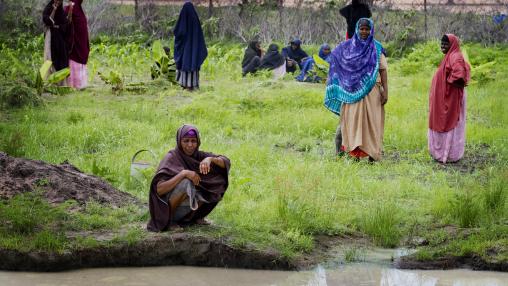
Mutually reinforcing factors led to soaring food insecurity in 2020: 2021 Global Report on Food Crises Released
The number of people around the world facing severe food insecurity skyrocketed by 20 million in 2020, according to the 2021 Global Report on Food Crises, released today. Acute food insecurity now affects at least 155 million people across 55 countries/territories, with some regions facing famine-level hunger. In light of these soaring numbers, the UN Sustainable Development Goal (SDG) of zero hunger by 2030 seems to have gotten further from reach.
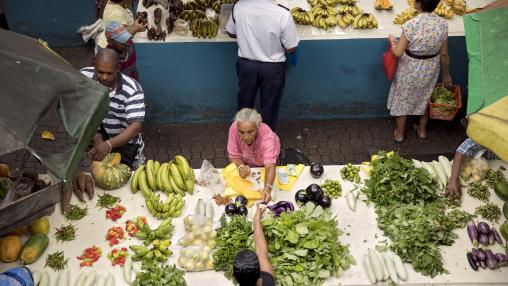
COVID-19 pandemic offers rare chance for food systems transformation
The COVID-19 pandemic has caused unprecedented disruptions of social interactions, affecting both the supply and demand for food. These disruptions to jobs, income and food supply magnified and exacerbated existing inequalities. While the emerging urban middle class suffered greater income losses, the poor and vulnerable in rural and urban areas experienced the worst livelihood impacts. Many social programs, including cash transfers, nutrition and education were interrupted, delayed, or halted, setting back decades of process in reducing poverty, hunger, malnutrition and illiteracy.
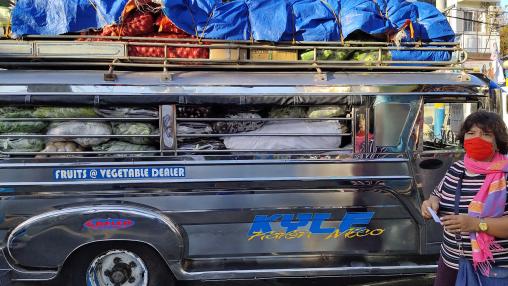
Global poverty increased in face of COVID-19: 2021 Global Food Policy Report Released
The COVID-19 pandemic and the associated policy responses have had wide-ranging impacts across the globe in terms of health, food security, incomes and livelihoods, and access to critical services. According to the 2021 Global Food Policy Report (GFPR), released this week by IFPRI, COVID-19’s effects have moved the world further away from achieving the Sustainable Development Goals (SDGs) by 2030.